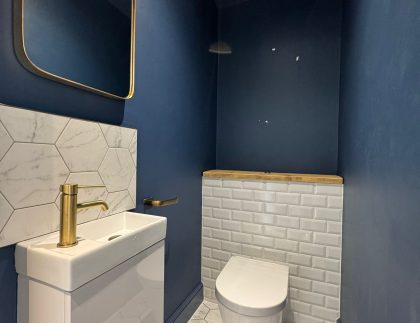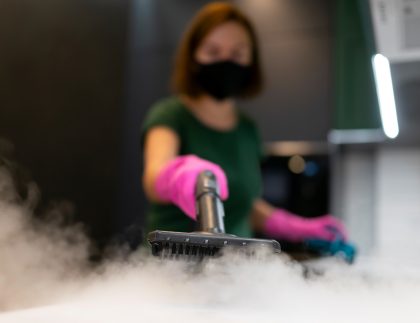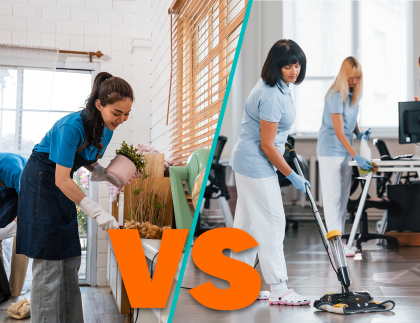
In today's fast-paced society, sanitation and hygiene are more important than ever. Cleaning has developed from conventional to cutting-edge methods to meet varied demands. Specialized cleaning options are explored in this article. Specialized cleaning services clean industrial locations, medical institutions, and high-tech labs. Cleaning services that go above and beyond are in demand as businesses evolve and health and safety awareness rises.
From biohazard cleanup to data center sterilization, knowing and studying these specific methodologies is crucial to safeguarding people's health and the proper functioning of many sectors. We'll explore specialist cleaning's cutting-edge procedures and technology.
Tailoring Cleanliness for Unique Environments
Modern cleaning involves adapting to specific settings. Different areas need different cleaning procedures. Industrial, medicinal, and high-tech labs have different cleaning needs.
Industrial areas include stubborn stains and impurities that need specialist equipment and chemicals. Medical institutions prioritize cleanliness and infection control, requiring strict regulations. Precision cleaning prevents cross-contamination and equipment failure in high-tech labs.
These issues need customized solutions. These methods clean well and safely by considering surfaces, materials, and possible threats. As technology progresses, electrostatic cleaning and UV sterilization are becoming popular. Specialized cleaning promotes cleanliness, safety, and optimum operation by responding to varied surroundings.
Advanced Techniques for Industrial Spaces
Industrial cleaning requires modern methods. Heavy machinery, complicated equipment, and sticky filth make conventional cleaning procedures fail in these circumstances. Advanced methods assure cleanliness and operational integrity for this complexity. Abrasive blasting removes difficult residues from surfaces to prepare them for later treatments. Chemical cleaning uses specialized solutions to safely remove industrial pollutants. Encapsulation technology, which protects against dirt accumulation and facilitates cleaning, is also growing.
Robotic cleaning technologies are also changing industrial maintenance. These autonomous devices can clean difficult locations without exposing humans to dangerous situations. Companies may improve productivity, equipment longevity, and working conditions by using these modern industrial cleaning methods, highlighting the need of specialist cleaning in industrial facilities.
Ensuring Hygiene in Medical Facilities
To protect patients and healthcare workers, hospital facilities must be clean. Medical facilities need strict cleaning due to infection risk. Medical-grade sanitizers must be used often to prevent infections from spreading on high-touch surfaces, waiting areas, and patient rooms. Maintaining sterility requires proper waste disposal and equipment sterilization.
Health regulators need medical institutions to clean thoroughly to avoid cross-contamination. Hygiene is essential to optimal healthcare due to the risk of healthcare-associated infections.
Precision Cleaning in High-Tech Areas
Precision cleaning in high-tech sectors is essential for dependability and functioning. Clean rooms and tech labs need rigorous cleaning to avoid contamination and maintain sensitive equipment. Precision cleaning eliminates tiny particles that might disturb delicate processes using microfiber cloths, ultra-purified water, and regulated airflow. Foreign chemicals are limited by strict procedures.
Dust, residue, and impurities may affect research and product quality. Precision cleaning standards help high-tech facilities innovate in precision-driven sectors.
Managing Biohazards: Cleaning and Safety
Biohazards must be cleaned and managed to protect public health and workplace security. Biohazardous items, such as pathogens, are dangerous. Proper cleaning requires biohazard-neutralizing disinfectants, specialized equipment, and PPE. Disposal and decontamination reduce disease transmission and safeguard employees and the environment.
Experts in biohazard remediation follow strict protocols to confine, clean, and remove these toxic pollutants. Biohazards are addressed extensively to protect communities and workplaces from health crises and safety issues.
Digital Age: Cleaning Data Centers
Data center cleaning is essential for technological infrastructure in the digital era. Dust and particles may damage data and equipment. To avoid static electricity and particle contamination, HEPA filters and low-static equipment are used. To minimize downtime and inconvenience, cleaning schedules are meticulously scheduled. Safely handling delicate equipment is trained by technicians.
Data centers store essential information for numerous businesses, therefore specialist cleaning provides maximum efficiency and dependability, allowing flawless operations and protecting precious digital assets.
Innovations in Specialized Cleaning
Specialized cleaning procedures have improved efficiency and sustainability. Electrostatic spraying, UV-C disinfection, and nanotechnology-based coatings are changing hygiene procedures. These improvements disinfect quickly and thoroughly, decreasing chemical use. AI-equipped robotic cleaners improve accuracy in varied situations. Additionally, eco-friendly cleaning products promote human and environmental health.
As businesses understand the need for specialized cleaning, ongoing innovation drives the development of solutions that address particular cleaning difficulties, creating cleaner and safer environments across varied sectors.
Custom Solutions for Specific Needs
Effective specialized cleaning relies on custom solutions. Recognizing that one size doesn't fit all, these solutions handle specific issues in varied situations. From industrial locations with heavy equipment to delicate medical facilities, unique techniques include surfaces, materials, and risks. For comprehensive cleaning and safety, they use specialized equipment, chemicals, and methods.
These solutions maximize results, decrease resource waste, and increase efficiency by examining each case individually. Custom cleaning solutions concentrate on flexibility and accuracy to preserve cleanliness while fulfilling the unique needs of different areas and sectors.
Future Trends in Specialized Cleaning
Technology, sustainability, and changing demands will shape specialized cleaning trends. Cleaning will improve with robotics and AI. Eco-friendly goods and chemical reduction will gain popularity. Long-lasting protection will come from antimicrobial coatings and materials. Data-driven tailored cleaning programs maximize resource usage.
Remote monitoring and automated cleaning will increase as places grow smarter and linked. Technology, environmental awareness, and customized cleaning will provide safer, cleaner, and more sustainable surroundings.
Conclusion
Modern society's quest for hygiene and safety relies on specialized cleaning. The voyage through industrial areas, medical institutions, and modern labs shows the different needs that require specific cleaning methods. Cleaning procedures are constantly changing as new technology like AI-driven robots and antimicrobial coatings emerge. The sector's commitment to effectiveness and accuracy is shown by its capacity to customize solutions.
Specialized cleaning's future is one of sustainability and innovation. Data-driven initiatives and automated cleaning procedures promise a more connected and efficient future. Eco-friendly actions are promoted through environmental awareness. Thus, specialist cleaning will continue to shape safer, cleaner, and more environmentally friendly places for future generations.










